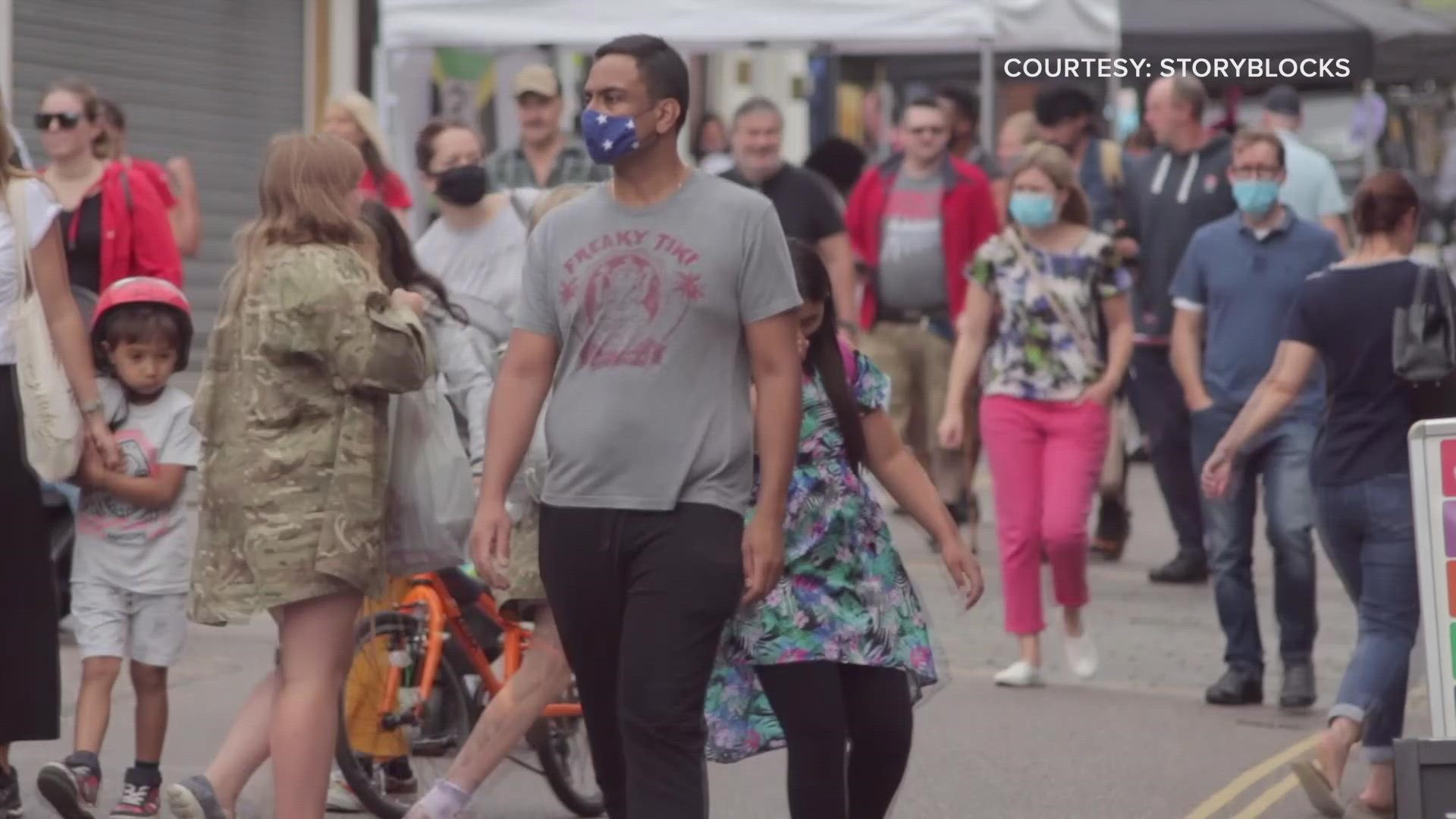WASHINGTON — We’ve already been through two winters with COVID-19, but this year, we have three viruses on our minds: COVID-19, the flu, and RSV. The numbers are up, and Rochelle Walensky, director of the Centers for Disease Control (CDC), encouraged masking up at a recent press event.
Despite dealing with masking regulations and recommendations for more than two years, many people still want to know what mask protects them best. So we took the question straight to the experts.
THE QUESTION
Are some masks better than others at protecting against COVID-19 and other viruses?
THE SOURCES
THE ANSWER
Yes. N95s offer the most protection, followed by surgical masks and then cloth masks. However, the fit of a mask matters greatly.
WHAT WE FOUND
There are three main types of masks: cloth, surgical, and N95s, also known as respirators. They don’t just prevent COVID-19, but can block all sorts of viruses.
“The most important thing is to wear a mask," Nabha said.
While different masks offer different degrees of protection, something is better than nothing. Still, if you want to maximize your safety (and the safety of those around you) Nabha said N95s offer the most protection, followed by surgical and then cloth masks.
Those rankings are backed up by a study from the International Journal of Environmental Research and Public Health. Researchers tested a variety of masks, including multiple cloth variants, surgical and N95s, to determine how well they prevent viruses from spreading.
They found that even the best cloth masks only removed a maximum of 22% of virus-sized particles out of the air. Surgical masks did much better at 91% removal, and N95 respirators took first place by removing a maximum of nearly 94% of test particles when inhaling.
However, those numbers were in lab conditions. The real world is a bit more complicated.
“It’s not just the mask that you’re using,” Nabha said, “but how are you using that mask? And how well is it fitting on you?”
Even a great mask won’t do much if you don’t cover your nose, and it turns out even small problems with the fit can change performance.
Standard testing assumes a perfect seal, which researchers achieved by physically sticking every edge of the mask to the face with tape. That’s hard to match in real life, and would likely be quite uncomfortable if you did.
Researchers tested the same masks again, this time only sealing them at the nose, chin, and jawline - intentionally leaving gaps along the cheeks, similar to a loosely worn mask. The result? Protection dropped by as much as 92%.
That is one of the benefits of N95 masks: they are designed to create a perfect seal on your face, which means it is easier to achieve high levels of protection with minimal adjustment.
If you don’t have an N95, you have a couple options. The CDC has a list of pharmacies with free n95s, so you might be able to get one depending on where you live. Otherwise, the CDC posted recommendations for getting the most out of your surgical and cloth masks. Options include knotting the ear loops to get a better fit and double masking to increase protection.
It’s worth noting that KN95s - another option that Nabha said are a level below N95 but better than surgical masks - aren’t always what they seem. The CDC warned that many KN95 respirators don’t meet international requirements, and using one of these poor-quality products may not offer the expected level of protection. If you decide to purchase a KN95, check out this CDC guidance to help make sure you get what you pay for.
At the end of the day, any mask is better than nothing. Still, it’s worth noting that in testing, even a poor fitting N95 offered better protection than a perfectly worn cloth mask.
All this to say, if you really want to stay safe this holiday season, it might be time to level up your cloth mask to a surgical or N95.

